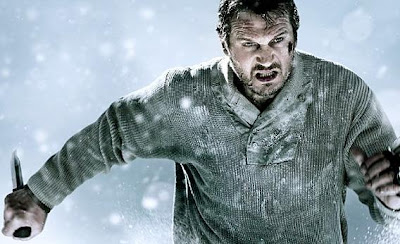Here is a brief breakdown of what I'm trying to knock out in the first quarter of the year:
 As a Boston University trained theologian, Crouch (editing director of the Christian Vision Project) presents an excellent and well thought-out case as to why Christians should be pioneers of "culture creation" within our societies. Outlining the options of condemning, critiquing, copying or consuming culture, Crouch presents a fresh option for the church: creating culture. The author argues that, once upon a time, the Church broke ground as leaders in the areas of academia, health care and literature/arts. Since then, we've simply lagged behind what the culture at-large has already crafted. Crouch continually challenges me in this book to look for ways to lead our culture in creating fresh approaches that cause the world to take notice of our Source of creativity: our Creator.
As a Boston University trained theologian, Crouch (editing director of the Christian Vision Project) presents an excellent and well thought-out case as to why Christians should be pioneers of "culture creation" within our societies. Outlining the options of condemning, critiquing, copying or consuming culture, Crouch presents a fresh option for the church: creating culture. The author argues that, once upon a time, the Church broke ground as leaders in the areas of academia, health care and literature/arts. Since then, we've simply lagged behind what the culture at-large has already crafted. Crouch continually challenges me in this book to look for ways to lead our culture in creating fresh approaches that cause the world to take notice of our Source of creativity: our Creator.The Utter Relief of Holiness: How God's Goodness Frees Us From Everything That Plagues Us by John Eldredge
 Ok...I'll admit it. I've got a literary crush on Eldredge's works. So that's probably why I pre-ordered this book and have been tearing through it quite rapidly. In the midst of reading a lot of brain food, I always find John's words are the respite I need in my life. As usual, Eldredge builds on his theme of pursuing a life that allows Christ to make us holy AND whole. I knew I'd like this book when, in his opening pages, John writes that "a great deal of time and energy here is spent trying to make people behave. And it is right...and it is wrong...What you see in Jesus is what he is after in you." Halfway in to this work, it truly is an "utter relief" to be reminded that only God can make us redeemed and whole.
Ok...I'll admit it. I've got a literary crush on Eldredge's works. So that's probably why I pre-ordered this book and have been tearing through it quite rapidly. In the midst of reading a lot of brain food, I always find John's words are the respite I need in my life. As usual, Eldredge builds on his theme of pursuing a life that allows Christ to make us holy AND whole. I knew I'd like this book when, in his opening pages, John writes that "a great deal of time and energy here is spent trying to make people behave. And it is right...and it is wrong...What you see in Jesus is what he is after in you." Halfway in to this work, it truly is an "utter relief" to be reminded that only God can make us redeemed and whole.The Silmarillion by J.R.R. Tolkien
 I've quickly discovered that my fiction pick of early 2013 isn't the same flowing type of read as Tolkien's other popular works. Written shortly before his death, the author of The Hobbit attempted to craft a series of tales that explained the creation of Middle Earth and the "First Age" of the Elder Days. Paced more like a historical textbook than a carefree tale of hobbits and dwarves, this book still provides a great escape for the Tolkien Nerd in all of us. Even though I prefer the epic style of The Lord of the Rings trilogy, The Silmarillion remains a classic in the way it beautifully expands the universe of Elrond, Galadriel and Gandalf himself.
I've quickly discovered that my fiction pick of early 2013 isn't the same flowing type of read as Tolkien's other popular works. Written shortly before his death, the author of The Hobbit attempted to craft a series of tales that explained the creation of Middle Earth and the "First Age" of the Elder Days. Paced more like a historical textbook than a carefree tale of hobbits and dwarves, this book still provides a great escape for the Tolkien Nerd in all of us. Even though I prefer the epic style of The Lord of the Rings trilogy, The Silmarillion remains a classic in the way it beautifully expands the universe of Elrond, Galadriel and Gandalf himself.On a rainy day like today, I strongly recommend a good cup of coffee and any or all of these thought-provoking works.












